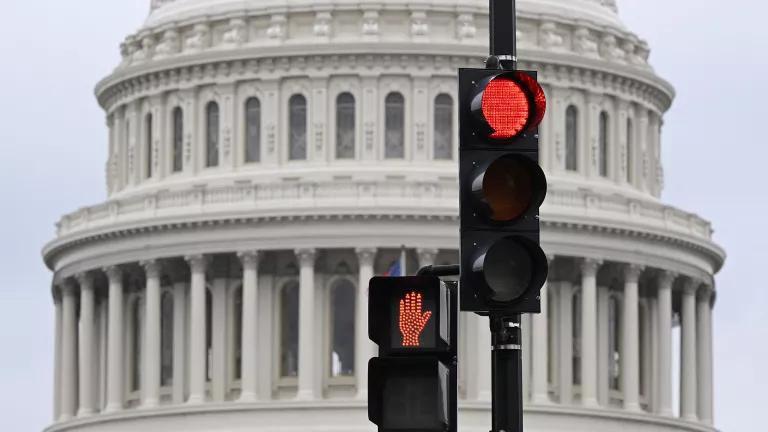McDonald’s Empty Promises Fuel Antibiotic Resistance Crisis
McDonald's fails to deliver on its pledge to end routine antibiotic use in global beef supplies.

McDonald's restaurant, Albuquerque, New Mexico, 2011
Much attention is being paid to corporate greenwashing this month, as global leaders come together at COP26 and companies are being held to greater account for their carbon emissions reduction pledges. This increased scrutiny is vital to ensure substantive and meaningful changes behind these voluntary promises. As public attention shifts towards the global Antibiotics Awareness Week, hosted by the World Health Organization and the U.S. Center for Disease Control and Prevention, one company in particular deserves to be put under the microscope for its lack of progress in implementing its promises: McDonald’s.
Back in 2018, McDonald’s made a groundbreaking pledge that directed its global meat suppliers to restrict use of the medically important antibiotics in beef produced for the company. The hamburger giant was supposed to launch pilot projects in 10 markets around the world, including the U.S., and release its reduction targets by the end of 2020. McDonald’s—one of the largest beef buyers in the world—was the first major U.S. burger chain to announce a comprehensive antibiotic use reduction policy for all beef sold by its restaurants. This announcement earned the company praise from advocates, including NRDC, who have long called for major food companies to leverage their supply chain influence to shift problematic practices in the U.S. livestock industry.
Nearly a year has passed since that December 2020 deadline, and McDonald’s has yet to share any new information with the public about its progress. This is particularly concerning given that the U.S. beef industry—in contrast to chicken—has taken very little action to address antibiotics overuse to date. Yet more medically important antibiotics are sold for use on cows than people. And 41 percent of medically important antibiotics sold to the U.S. livestock sector go to cattle production—compared to only 3 percent for chicken. As an iconic global restaurant brand and an industry leader, McDonald’s reaped the benefits of greenwashing without delivering on its own pledge to its customers.
No Longer a Leader
Back in 2015, when it committed to end the use of medically important antibiotics in its U.S. chicken supply chain, McDonald’s positioned itself as an early leader in the fight for antibiotic stewardship. That pledge was fully implemented in 2016, and helped inspire a wholesale transformation of drug use practices in the U.S. chicken industry.
Unfortunately, the company has fallen from its leadership position. The cautious optimism that McDonald’s inspired in 2018 has evolved into deep disappointment and concern that without continued leadership among food companies (and governments), antibiotic resistance will become yet another global pandemic before too long. After all, United Nations scientists predict that without concrete action to reverse course, there will be up to 10 million annual deaths a year caused by antibiotic resistant infections by 2050. For context, COVID-19 has taken lives of over five million people around the world, about one and a half years into the pandemic.
Antibiotic Resistance Unfolding Around Us

Cattle in a Kansas feedlot.
Leading medical experts warn that the life-saving drugs we rely on to treat common infections and enable medical procedures could increasingly stop working, if we continue to overuse antibiotics in human medicine and animal agriculture. In the industrial livestock sector, the vast majority of these drugs are routinely distributed via animal feed or water so that large groups of animals that are not sick can survive crowded, stressful and unsanitary conditions. This practice contributes to the rise and spread of antibiotic-resistant bacteria and increases the risk of difficult—or sometimes impossible to treat—infections in humans.
McDonald’s has a golden opportunity to reestablish itself as a changemaker on this critical issue, and it will take swift action, transparency, and significant antibiotic use reduction targets to get there. Otherwise, we can consider their beef antibiotics promise yet another corporate greenwashing scandal.




